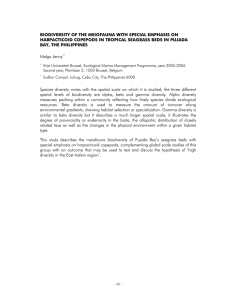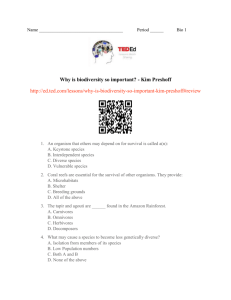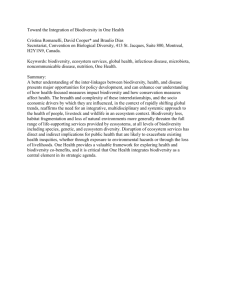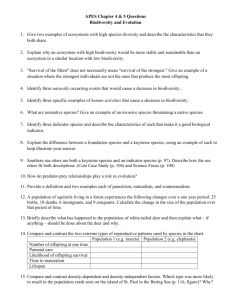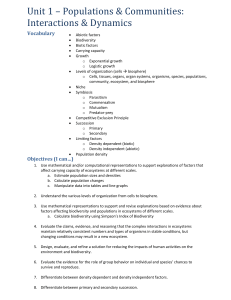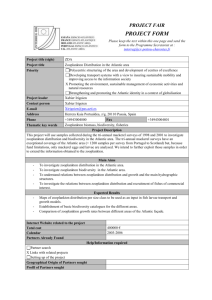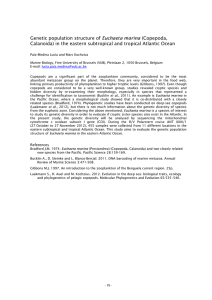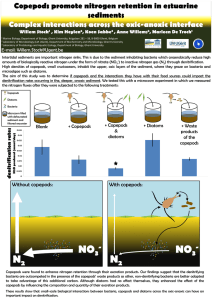Marine biodiversity, ecosystem functioning and carbon
advertisement
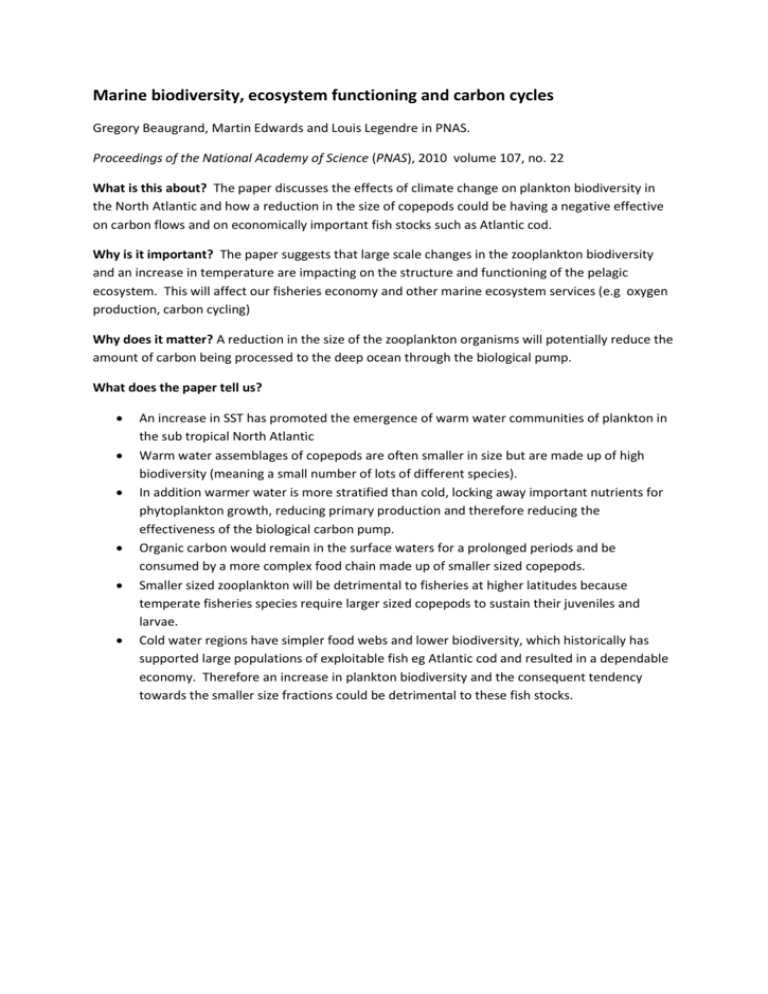
Marine biodiversity, ecosystem functioning and carbon cycles Gregory Beaugrand, Martin Edwards and Louis Legendre in PNAS. Proceedings of the National Academy of Science (PNAS), 2010 volume 107, no. 22 What is this about? The paper discusses the effects of climate change on plankton biodiversity in the North Atlantic and how a reduction in the size of copepods could be having a negative effective on carbon flows and on economically important fish stocks such as Atlantic cod. Why is it important? The paper suggests that large scale changes in the zooplankton biodiversity and an increase in temperature are impacting on the structure and functioning of the pelagic ecosystem. This will affect our fisheries economy and other marine ecosystem services (e.g oxygen production, carbon cycling) Why does it matter? A reduction in the size of the zooplankton organisms will potentially reduce the amount of carbon being processed to the deep ocean through the biological pump. What does the paper tell us? An increase in SST has promoted the emergence of warm water communities of plankton in the sub tropical North Atlantic Warm water assemblages of copepods are often smaller in size but are made up of high biodiversity (meaning a small number of lots of different species). In addition warmer water is more stratified than cold, locking away important nutrients for phytoplankton growth, reducing primary production and therefore reducing the effectiveness of the biological carbon pump. Organic carbon would remain in the surface waters for a prolonged periods and be consumed by a more complex food chain made up of smaller sized copepods. Smaller sized zooplankton will be detrimental to fisheries at higher latitudes because temperate fisheries species require larger sized copepods to sustain their juveniles and larvae. Cold water regions have simpler food webs and lower biodiversity, which historically has supported large populations of exploitable fish eg Atlantic cod and resulted in a dependable economy. Therefore an increase in plankton biodiversity and the consequent tendency towards the smaller size fractions could be detrimental to these fish stocks.
